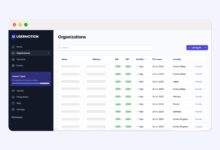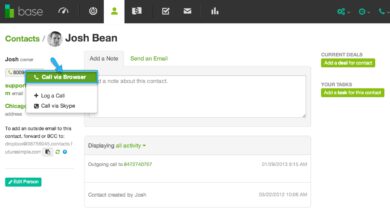Cloud Based WhatsApp CRM: 7 Powerful Benefits You Can’t Ignore
In today’s fast-paced digital world, businesses are turning to cloud based WhatsApp CRM solutions to supercharge customer engagement. Seamless, scalable, and smart—these tools are redefining how brands communicate. Let’s dive into why this shift is unstoppable.
What Is a Cloud Based WhatsApp CRM?

A cloud based WhatsApp CRM integrates the popular messaging platform WhatsApp with customer relationship management (CRM) software hosted on the cloud. This fusion allows businesses to manage customer interactions, automate responses, track conversations, and streamline sales and support—all from a centralized, internet-accessible platform. Unlike traditional CRMs that rely on local servers, cloud-based systems offer real-time access from any device, anywhere in the world.
How It Differs from Traditional CRM Systems
Traditional CRM systems often require on-premise installations, complex setups, and manual data syncing. In contrast, a cloud based WhatsApp CRM eliminates the need for physical infrastructure. It operates entirely online, enabling instant deployment and automatic updates. This shift not only reduces IT overhead but also enhances collaboration across teams.
- Traditional CRMs: Installed locally, limited remote access
- Cloud based WhatsApp CRM: Accessible via browser, real-time sync
- Maintenance: Manual vs. automated by service provider
According to Gartner, cloud-based conversational platforms are projected to power over 70% of customer interactions by 2026, highlighting the growing reliance on digital messaging channels like WhatsApp.
Core Components of a Cloud Based WhatsApp CRM
A robust cloud based WhatsApp CRM consists of several integrated modules designed to enhance customer communication and business efficiency.
- Message Automation: Enables businesses to send instant replies, confirmations, and follow-ups using predefined templates.
- Contact Management: Stores customer profiles, interaction history, and preferences in a unified database.
- Analytics Dashboard: Tracks key metrics like response time, conversation volume, and conversion rates.
- Integration Capabilities: Connects with existing tools like email, e-commerce platforms, and helpdesk software.
“The future of customer service isn’t just digital—it’s conversational.” — Forbes
Why Businesses Are Adopting Cloud Based WhatsApp CRM
The global shift toward mobile-first communication has made WhatsApp a dominant channel for customer engagement. With over 2.7 billion users worldwide, WhatsApp offers unparalleled reach. When combined with cloud CRM capabilities, it becomes a powerful tool for sales, marketing, and support teams.
Expanding Mobile Customer Base
Smartphone penetration continues to rise, especially in emerging markets. Customers now expect instant, personalized responses on the platforms they use daily. A cloud based WhatsApp CRM meets this demand by enabling businesses to engage customers where they already are—on their phones.
For example, in countries like India, Brazil, and Indonesia, WhatsApp is not just a messaging app—it’s a primary communication channel for everything from shopping to banking. Companies leveraging this trend report higher customer satisfaction and faster resolution times.
Cost Efficiency and Scalability
One of the biggest advantages of a cloud based WhatsApp CRM is its cost-effectiveness. There’s no need to invest in expensive hardware or hire dedicated IT staff. Most platforms operate on a subscription model, allowing businesses to scale up or down based on demand.
- Pay-as-you-go pricing models reduce upfront costs
- Automatic scaling during peak seasons (e.g., holidays, sales)
- Reduced need for call centers and physical support desks
Platforms like Twilio and MessageBird offer flexible APIs that integrate seamlessly with cloud CRM systems, making it easier for businesses to launch WhatsApp campaigns without heavy technical investment.
Top 7 Benefits of Using a Cloud Based WhatsApp CRM
Adopting a cloud based WhatsApp CRM isn’t just about staying current—it’s about gaining a competitive edge. Here are seven transformative benefits that make this technology indispensable for modern businesses.
1. Real-Time Customer Engagement
With a cloud based WhatsApp CRM, businesses can respond to customer inquiries instantly. Automated triggers can send order confirmations, shipping updates, or appointment reminders the moment an action occurs.
This immediacy improves customer experience and reduces the likelihood of missed opportunities. For instance, an e-commerce store can automatically notify a customer when an item they viewed is back in stock, increasing the chance of a purchase.
2. Centralized Communication Hub
Managing customer conversations across multiple channels—email, phone, social media—can be chaotic. A cloud based WhatsApp CRM consolidates all interactions into a single dashboard.
- All WhatsApp messages are logged with timestamps and user details
- Team members can pick up conversations seamlessly
- No more lost messages or duplicated responses
This centralization improves team coordination and ensures consistent messaging, which is crucial for brand reputation.
3. Enhanced Data Security and Compliance
Cloud providers invest heavily in security infrastructure. A reputable cloud based WhatsApp CRM ensures end-to-end encryption, data backups, and compliance with global regulations like GDPR and CCPA.
Unlike local systems that can be vulnerable to hardware failure or unauthorized access, cloud platforms offer multi-layered protection, including two-factor authentication and role-based access control.
“Security is no longer an add-on—it’s built into the foundation of modern cloud CRM systems.” — TechCrunch
4. Seamless Integration with Business Tools
Most cloud based WhatsApp CRM platforms offer native integrations with popular business software such as Shopify, Salesforce, HubSpot, and Google Workspace.
For example, when a customer places an order on Shopify, the CRM can automatically create a contact record, send a confirmation via WhatsApp, and trigger a follow-up message after delivery. This level of automation reduces manual work and minimizes errors.
Check out Zapier’s integration directory to see how WhatsApp connects with over 5,000 apps, enabling limitless workflow automation.
5. Advanced Analytics and Reporting
Understanding customer behavior is key to improving service and driving sales. A cloud based WhatsApp CRM provides detailed analytics on conversation trends, agent performance, and campaign effectiveness.
- Track average response time and resolution rate
- Monitor message delivery and read rates
- Identify peak engagement hours
These insights allow businesses to optimize their strategies, train support teams, and personalize future interactions.
6. Global Reach with Localized Messaging
Cloud based WhatsApp CRM platforms support multilingual messaging and regional customization. Businesses can send messages in the customer’s preferred language and tailor content based on location, time zone, or cultural context.
For multinational companies, this capability is invaluable. A hotel chain, for example, can send booking confirmations in English to U.S. guests and in Spanish to customers from Mexico—all automatically, without manual intervention.
7. Improved Sales Conversion Rates
WhatsApp is a high-intent channel. When a customer messages a business, they’re often ready to buy. A cloud based WhatsApp CRM helps sales teams capitalize on this intent by providing instant access to customer history, product catalogs, and pricing.
Agents can share rich media—images, PDFs, videos—directly within the chat, making the sales process more engaging and efficient. Studies show that businesses using WhatsApp for sales see conversion rates up to 35% higher than traditional methods.
How to Choose the Right Cloud Based WhatsApp CRM for Your Business
With so many options available, selecting the right cloud based WhatsApp CRM can be overwhelming. The key is to evaluate your business needs, budget, and long-term goals before making a decision.
Assess Your Business Requirements
Start by identifying your primary use cases. Are you looking to improve customer support? Boost sales? Automate marketing campaigns? Different platforms specialize in different areas.
- Support-focused CRMs: Prioritize ticketing, agent collaboration, and SLA tracking
- Sales-focused CRMs: Emphasize lead management, pipeline tracking, and media sharing
- Marketing-focused CRMs: Offer broadcast messaging, segmentation, and campaign analytics
For small businesses, simplicity and ease of use should be top priorities. Larger enterprises may need advanced features like API access, custom workflows, and multi-team permissions.
Evaluate Integration and API Support
A cloud based WhatsApp CRM should integrate smoothly with your existing tech stack. Look for platforms that offer pre-built connectors for your e-commerce platform, payment gateway, or ERP system.
If you have a development team, check whether the CRM provides a robust API. This allows you to build custom automations, sync data with internal databases, or create bespoke dashboards.
For example, Meta’s WhatsApp Cloud API is free to use and offers extensive documentation, making it a popular choice for developers building custom CRM solutions.
Check Security, Compliance, and Uptime
Data security should never be compromised. Ensure the CRM provider complies with industry standards like ISO 27001, SOC 2, and GDPR.
- Ask about data encryption (in transit and at rest)
- Verify backup and disaster recovery protocols
- Review the provider’s uptime SLA (Service Level Agreement)
Reputable providers typically offer 99.9% uptime, ensuring your customer communications remain uninterrupted.
Step-by-Step Guide to Setting Up a Cloud Based WhatsApp CRM
Getting started with a cloud based WhatsApp CRM doesn’t have to be complicated. Follow this step-by-step guide to launch your system in days, not weeks.
Step 1: Register for WhatsApp Business API
To use WhatsApp for business at scale, you need access to the WhatsApp Business API. You can apply directly through Meta or use a Business Solution Provider (BSP) like Twilio, MessageBird, or 360dialog.
The registration process involves verifying your business, setting up a phone number, and agreeing to WhatsApp’s commerce policy. Once approved, you’ll receive API credentials to connect your CRM.
Step 2: Choose and Configure Your CRM Platform
Select a CRM that supports WhatsApp integration. Popular options include Zendesk, HubSpot, Freshdesk, and Intercom. During setup, enter your API credentials and configure message templates for common use cases (e.g., order confirmation, support ticket).
Ensure your team has the necessary permissions and training to use the system effectively.
Step 3: Import and Organize Customer Data
Upload your existing customer database into the CRM. Most platforms support CSV imports and can automatically segment contacts based on behavior, location, or purchase history.
Tagging and labeling features help you create targeted messaging campaigns. For example, you can tag customers who abandoned their cart and send them a personalized reminder via WhatsApp.
Step 4: Automate Key Workflows
Leverage automation to save time and improve consistency. Set up triggers for:
- Sending welcome messages to new subscribers
- Notifying customers about order status changes
- Following up after a support ticket is closed
Test your automations thoroughly before going live to avoid errors.
Step 5: Train Your Team and Monitor Performance
Conduct training sessions for your sales and support teams. Cover best practices for WhatsApp communication, response etiquette, and using the CRM dashboard.
Once live, monitor key performance indicators (KPIs) like response time, customer satisfaction (CSAT), and conversion rate. Use these insights to refine your approach.
Real-World Use Cases of Cloud Based WhatsApp CRM
From e-commerce to healthcare, businesses across industries are leveraging cloud based WhatsApp CRM to transform customer experiences.
E-Commerce: Personalized Shopping Assistance
Online retailers use WhatsApp CRM to provide real-time product recommendations, answer sizing questions, and assist with checkout. For example, a fashion brand can send a customer a link to a dress they viewed, along with available sizes and a direct purchase option—all within the chat.
This level of personalization increases average order value and reduces cart abandonment.
Healthcare: Appointment Reminders and Patient Follow-Ups
Hospitals and clinics use cloud based WhatsApp CRM to send automated appointment reminders, reducing no-show rates by up to 30%. After a visit, patients receive post-care instructions and satisfaction surveys via WhatsApp, improving engagement and outcomes.
Platforms like Tataylors specialize in healthcare CRM solutions that comply with HIPAA regulations, ensuring patient data remains secure.
Education: Student Engagement and Course Updates
Universities and online learning platforms use WhatsApp CRM to keep students informed about deadlines, class schedules, and exam results. Automated bots can answer frequently asked questions, freeing up staff for more complex queries.
During the pandemic, many institutions relied on WhatsApp to maintain communication with remote learners, proving its value in education.
Common Challenges and How to Overcome Them
While cloud based WhatsApp CRM offers immense benefits, businesses may face certain challenges during implementation.
Challenge 1: Navigating WhatsApp’s Messaging Policies
WhatsApp has strict rules about unsolicited messaging. Businesses must obtain user consent before sending promotional content. Violations can result in account suspension.
Solution: Always use opt-in mechanisms (e.g., checkbox on website, QR code scan) and provide clear value in return for consent. Focus on transactional and service messages, which are exempt from marketing restrictions.
Challenge 2: Managing High Message Volumes
As customer engagement grows, so does the volume of messages. Without proper tools, teams can become overwhelmed.
Solution: Use AI-powered chatbots to handle routine inquiries. Escalate complex issues to human agents with full context. Implement message queuing and team collaboration features to distribute workload evenly.
Challenge 3: Ensuring Data Privacy and Consent Management
With increasing data protection laws, businesses must ensure they collect, store, and use customer data responsibly.
Solution: Choose a CRM that includes built-in consent management tools. Allow users to easily unsubscribe and delete their data. Maintain audit logs to demonstrate compliance during inspections.
Future Trends in Cloud Based WhatsApp CRM
The evolution of cloud based WhatsApp CRM is far from over. Emerging technologies are set to make these systems even more intelligent and impactful.
AI-Powered Conversational Agents
Artificial intelligence is transforming WhatsApp CRM with smarter chatbots that understand natural language, detect customer sentiment, and provide context-aware responses. These bots can handle up to 80% of routine queries, freeing human agents for complex tasks.
Companies like Google Dialogflow are integrating AI with WhatsApp to create conversational experiences that feel human-like.
Rich Media and Interactive Messages
Future CRM systems will support more interactive content, such as product carousels, quick-reply buttons, and in-chat payment options. This turns WhatsApp into a full-fledged sales channel, not just a messaging app.
For example, a customer could browse a catalog, select items, and complete a purchase—all without leaving the WhatsApp chat.
Hyper-Personalization Through Data Analytics
Advanced analytics will enable businesses to deliver hyper-personalized messages based on real-time behavior. Imagine sending a discount offer the moment a customer hesitates on a checkout page.
By combining CRM data with AI, businesses can predict customer needs and proactively offer solutions, creating a truly anticipatory service model.
What is a cloud based WhatsApp CRM?
A cloud based WhatsApp CRM is a software system that integrates WhatsApp messaging with cloud-hosted customer relationship management tools, enabling businesses to manage conversations, automate responses, and track customer interactions from a centralized platform.
Is WhatsApp CRM suitable for small businesses?
Yes, cloud based WhatsApp CRM is highly suitable for small businesses due to its low cost, ease of setup, and scalability. Many platforms offer affordable plans tailored to startups and SMEs.
Can I automate messages on WhatsApp through CRM?
Yes, most cloud based WhatsApp CRM platforms support message automation using templates approved by WhatsApp. You can automate responses for inquiries, order updates, reminders, and more.
Is customer data secure in a cloud based WhatsApp CRM?
Reputable cloud based WhatsApp CRM providers implement strong security measures, including end-to-end encryption, data backups, and compliance with global privacy regulations like GDPR.
How do I get started with WhatsApp Business API?
You can apply for the WhatsApp Business API directly through Meta or via a certified Business Solution Provider (BSP) like Twilio or MessageBird. The provider will guide you through verification and setup.
Adopting a cloud based WhatsApp CRM is no longer a luxury—it’s a necessity for businesses aiming to deliver fast, personalized, and efficient customer service. From real-time engagement to advanced analytics, the benefits are clear. By choosing the right platform, following best practices, and staying ahead of trends, your business can unlock the full potential of WhatsApp as a powerful CRM channel. The future of customer communication is here, and it’s built on the cloud.
Further Reading:







